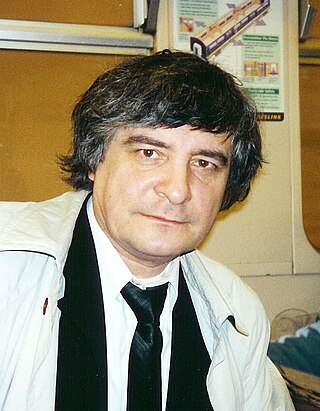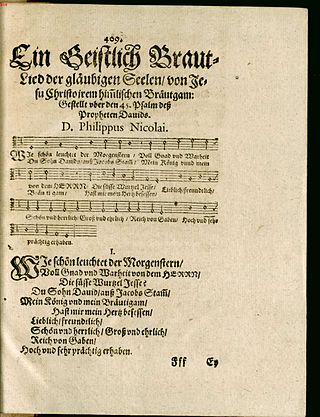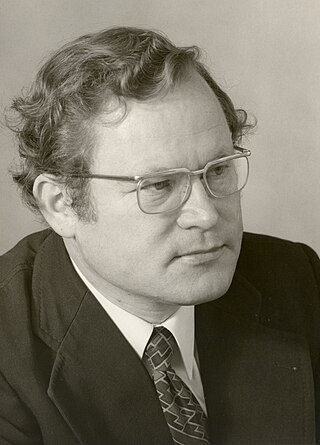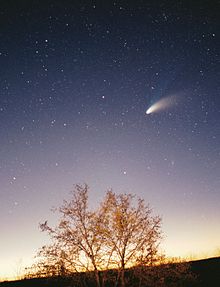
A string orchestra is an orchestra consisting solely of a string section made up of the bowed strings used in Western Classical music. The instruments of such an orchestra are most often the following: the violin, which is divided into first and second violin players, the viola, the cello, and usually, but not always, the double bass.

Alun Hoddinott CBE was a Welsh composer of classical music, one of the first to receive international recognition.
John Maynard La Montaine, also later LaMontaine, was an American pianist and composer, born in Oak Park, Illinois, who won the 1959 Pulitzer Prize for Music for his Piano Concerto No. 1 "In Time of War" (1958), which was premiered by Jorge Bolet.

Dmitri Nikolaevich Smirnov was a Russian-British composer and academic teacher, who also published as Dmitri N. Smirnov and D. Smirnov-Sadovsky. He wrote operas, symphonies, string quartets and other chamber music, and vocal music from song to oratorio. Many of his works were inspired by the art of William Blake.

Hans Gál OBE was an Austrian composer, pedagogue, musicologist, and author, who emigrated to the United Kingdom in 1938.
Carl Frühling was an Austrian composer and pianist.

Graham Waterhouse is an English composer and cellist who specializes in chamber music. He has composed a cello concerto, Three Pieces for Solo Cello and Variations for Cello Solo for his own instrument, and string quartets and compositions that juxtapose a quartet with a solo instrument, including Piccolo Quintet, Bassoon Quintet and the piano quintet Rhapsodie Macabre. He has set poetry for speaking voice and cello, such as Der Handschuh, and has written song cycles. His compositions reflect the individual capacity and character of players and instruments, from the piccolo to the contrabassoon.

"Wie schön leuchtet der Morgenstern" is a Lutheran hymn by Philipp Nicolai written in 1597 and first published in 1599. It inspired musical settings through centuries, notably Bach's chorale cantata Wie schön leuchtet der Morgenstern, BWV 1, but also vocal and instrumental works by Baroque composers, Peter Cornelius, Felix Mendelssohn, Max Reger, Hugo Distler, Ernst Pepping, Mauricio Kagel and Naji Hakim.

Gestural Variations, Op. 43, is a trio composition by Graham Waterhouse in 1997 originally for oboe, bassoon and piano. Later versions are scored for clarinet, cello and piano (1999) and flute, cello and piano (2009).
Jörg Duda is a German composer of classical music.

Herbert Blendinger was an Austrian composer and viola player of German origin.

Bei Nacht, op. 50, is a piano trio, composed in 1999 by Graham Waterhouse, published by Hofmeister, Leipzig.
A Christmas cantata or Nativity cantata is a cantata, music for voice or voices in several movements, for Christmas. The importance of the feast inspired many composers to write cantatas for the occasion, some designed to be performed in church services, others for concert or secular celebration. The Christmas story, telling of music of the angels and suggesting music of the shepherds and cradle song, invited musical treatment. The term is called Weihnachtskantate in German, and Cantate de Noël in French. Christmas cantatas have been written on texts in several other languages, such as Czech, Italian, Romanian, and Spanish.

Three Pieces for Solo Cello op. 28, is a composition for cello in three movements by Graham Waterhouse, dedicated to cellist Siegfried Palm in 1992. The composer, a cellist himself, wrote it to "exploit the characteristics" of his instrument. In 1996, a revised version won a composition prize and was performed at the Hochschule für Musik München. The work was published by the Friedrich Hofmeister Musikverlag in 1996 and recorded on a Portrait CD of chamber music in 2001.

Graham Waterhouse, cellist and composer especially of chamber music, has written a number of works for string quartet, three major works in several movements, several smaller works and compositions for a solo instrument and string quartet.

The Cello Concerto, Op. 27, is a concerto for cello and orchestra by Graham Waterhouse, composed in 1990. It was first performed in 1995 in Toluca and Mexico City with the composer as the soloist, and published by Friedrich Hofmeister Musikverlag in Leipzig in 2000.
Chieftain's Salute is a concerto in one movement for Great Highland Bagpipe and orchestra by Graham Waterhouse. The work is one of few to use the bagpipe with a classical orchestra. A version for bagpipe and string orchestra, Op. 34a, was composed in 2001. It is based on an earlier work for bagpipe and string quartet. Jacobean Salute was also derived from the early work, with a wind quintet replacing the bagpipe, published in 2003. A version for bagpipe and orchestra was composed and first performed in 2015.

Praeludium (Prelude), Op. 32, is a piece for piano by Graham Waterhouse, composed in 1992 and published by Lienau in 2002. The virtuoso composition has been played in concert internationally, and was recorded.







